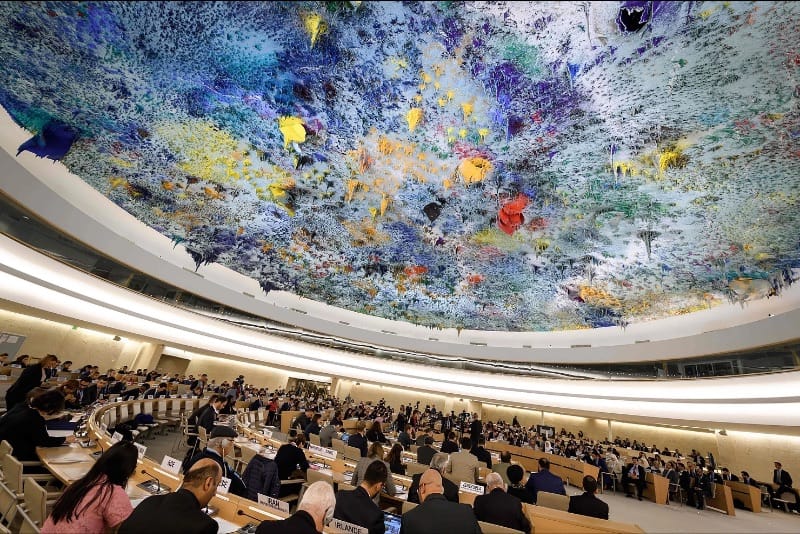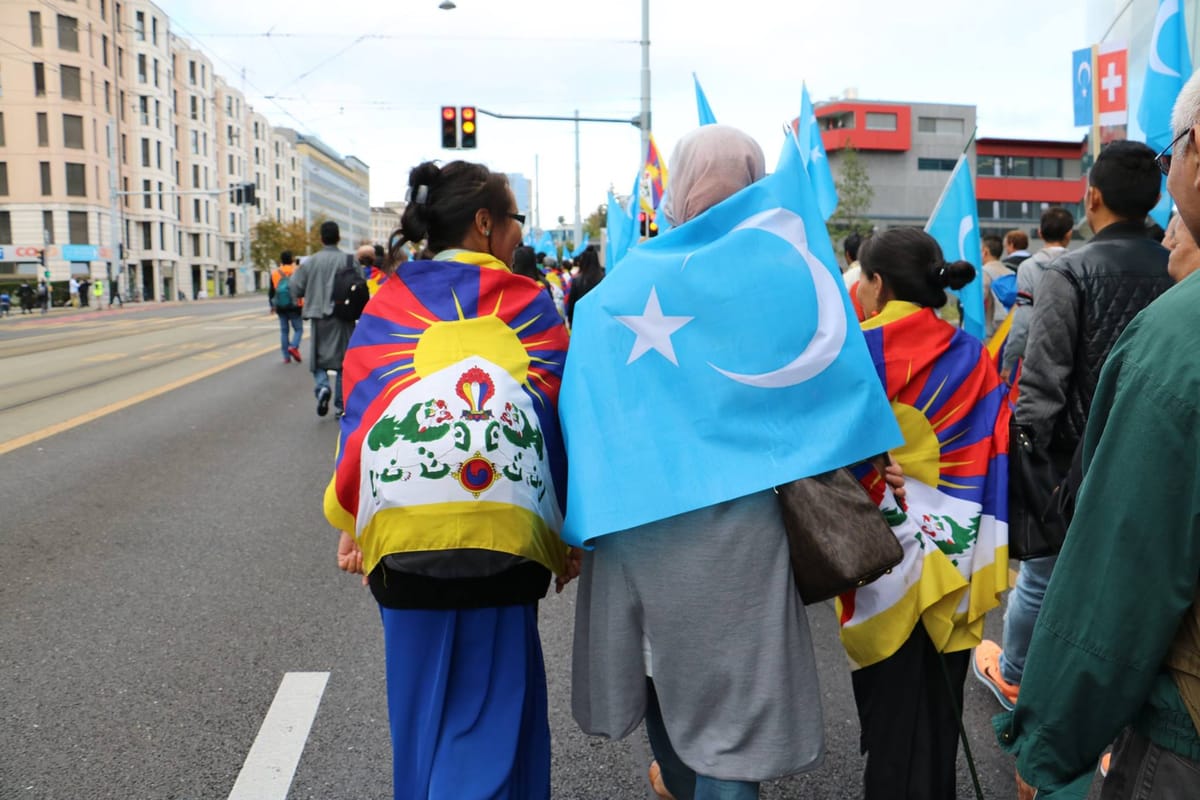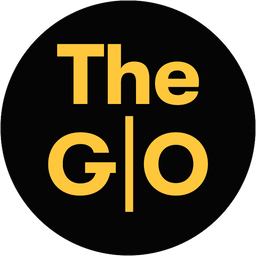
Activists Seek UN Action on China after “Disappointing” Rights Review
The UN human rights office led by Volker Türk must step up pressure on China over its documented repression of Uyghurs, Tibetans, and pro-democracy voices in Hong Kong, activists said this week, after what they called a rare but disappointing public review of Beijing’s record.
Türk should speak out, they said, in pursuing the work of his predecessor Michelle Bachelet, who published a damning report in her final hours in office in August 2022 which found that mass internment of Uyghurs in camps could constitute crimes against humanity.
“Our patience is running really thin. In the beginning, when he started, we wanted to give him time to adjust and everything—and then of course there are several wars around the world that obviously merit his attention as well,” Zumretay Arkin, Director of Global Advocacy at the World Uyghur Congress, told a news briefing after China’s Universal Periodic Review (UPR) was held on Tuesday, as protesters demonstrated outside the UN.
“We need him to show us that the China file is being prioritised by the OHCHR after that report,” she said, referring to the Office of the High Commissioner of Human Rights.
But Türk’s office, in written replies to the Geneva Observer, said that it was indeed pressing Beijing for reforms and raising cases of individual Uyghurs in the remote Xinjiang region to determine their fate. “Since releasing the assessment, High Commissioner Türk and the Office have maintained continuous and proactive engagement with the Government of China on [the subject of] human rights. The situation in Xinjiang remains of concern, and the laws and policies assessed in our report are still in place. The High Commissioner continues to press for implementation of the recommendations in our assessment report,” OHCHR spokesman Jeremy Laurence said in a reply. “We have also called on China to disclose information about the many people whose whereabouts remain unknown and/or to investigate any disappearance or possible death if this is the case and communicate to their families,” he said.
Peter Irwin of the Uyghur Human Rights Project told reporters, regarding Türk: “I hope he is not going down the same road as the previous High Commissioner [Bachelet], where there is this kind of focus on engagement […] I think you can only go so far with [this strategy],” adding: “What we have seen over the last two years is that the Office of the High Commissioner seems to be afraid to use that very strong language which was in the report from the High Commissioner’s office.”
Irwin acknowledged a media report of a diminished police presence on the streets in Xinjiang and fewer detainees in what China says are re-education camps, but pointed out that “maybe there aren’t so as many people in the camps now. But if you can go prison [for] 20 years for having a Qur’an at home, that’s not normal… You can have fewer people in the streets because people are deathly afraid to do or say anything that they used to do before.”
Lhadon Tethong of the Tibet Action Institute also voiced disappointment at the lack of public follow-up by the UN human rights office. “He has really failed to do what he could have done. He has signaled to the Chinese government that our issues are not [that] pressing and urgent, and that [Bachelet’s] approach was not [that] wrong,” she said.
45 Second Speeches
As reported exclusively last week by The Geneva Observer, Beijing’s diplomatic mission had asked the UN in Geneva (UNOG) to ensure that “anti-China separatists” were not granted access to the session—attendance at which requires accreditation—and that no “anti-China” slogans or banners would be tolerated on the premises.

Dozens of representatives from government-sponsored NGOs known as ‘Gongos’ queued up early to enter Room XX, preventing some “legitimate” activists from getting one of the 15 available NGO seats at the Human Rights Council, participants said.
Despite the 45 second limit imposed on member states’ speeches, some Western countries decried specific human rights violations—prompting Beijing’s large delegation to reject what they claimed were “lies” and a campaign to “smear China”.
The United States condemned “the ongoing genocide and crimes against humanity” against Uyghurs, while Britain and Switzerland also voiced concerns at mass arbitrary detention. Canada called on China to “end all coercive measures imposed on Uyghurs and Tibetans” and repeal the national security law in Hong Kong. Britain demanded a halt to the “persecution” of media tycoon Jimmy Lai, currently on trial in Hong Kong on charges of sedition and foreign collusion.
Australia, Denmark, Germany and Ireland also spoke out strongly against abuses while Montenegro called for the repeal of “discriminatory laws and policies against Uyghur and other ethno-religious minorities” and for an investigation into allegations of human rights violations in the camps including “torture, sexual violence, forced labour and other mistreatment”.
But Muslim majority states, apart from Türkiye and Kuwait, were conspicuously silent about persecution of their fellow Muslims.
“Failing the Uyghurs”
“I was especially disappointed that Malaysia, Indonesia, and Central Asian countries specifically, who themselves have their own citizens in these camps, have not spoken a word on these issues. There are Uzbeks, Kurds and Kazaks who have been interned arbitrarily in these camps since 2017. So it was definitely disappointing,” Zumretay Arkin said. “I think it is safe to say the Muslim majority countries have failed the Uyghurs, the OIC has failed the Uyghurs. The global ummah [community], that they call it, has definitely failed to protect the Uyghur voices and Uyghur human rights during the UPR, and beyond the UPR, whether it is at the Council or elsewhere,” she concluded.
China’s delegation went on the defensive, while assuring the forum that it had lifted nearly 100 million people out of poverty and claiming that its 1.4 billion citizens lived in harmony under the rule of law.
“The people of all 56 ethnic groups of China are equal and closely united like the seeds of a pomegranate, working together for common prosperity and development and for a better life for all,” China’s ambassador and head of delegation Chen Xu told the forum. “China's freedom of religious belief is safeguarded.”
“China will strengthen exchange and cooperation with the High Commissioner's office,” Chen added, giving no specifics.
There are “at least 17 pending visits” to China requested by UN human rights experts over the years, while others have “lapsed”, according to the OHCHR. The only recent visit allowed was by the UN expert on the rights of older persons in 2019.
Referring to Xinjiang, China’s delegation said: “It’s a window showcasing China's human rights development. We respect and protect human rights […] We maintain Xinjiang's social stability. We guarantee people’s right to life. In Xinjiang, we combat terrorism according to the law. We to the maximum degree guarantee basic commerce. For seven years there [have] been no cases of violence and terror.”
Dolkun Isa, president of the exiled World Uyghur Congress, dismissed China’s assertions, but did note that some 30 delegations had spoken out on Xinjiang—roughly twice the number as at the 2018 UPR. “My whole family was completely destroyed,” he said, adding that his mother had died in a “concentration camp” while one brother is serving a long prison sentence and the fate of the other is unknown. “Since 2017, I have lost access.”
“Today we have seen the Chinese government whitewashing and hiding its crimes. They are very successful with diplomatic power, using this disinformation campaign,” Isa said. African and Asian countries reaping economic benefits from China’s Belt and Road Initiative had been intimidated from making critical remarks, he added.
Sophie Richardson, an expert and former China director of Human Rights Watch, said: “We now increasingly hear Chinese rhetoric in the recommendations made by governments, I think indicating a level of control over the process or influence over the process that is problematic.”
Eric Chan, Hong Kong’s chief secretary for administration, told the UPR that by implementing the national security law in the former British colony since 2020—following pro-democracy protests—“the days of social disturbance and fear are now over: “Stability, as well as law and order, has been restored and our city is back on track.”
Tibetan Identity
Treatment of Tibetans was perhaps the area where the Chinese delegation finally commented in attempts to justify Beijing’s latest policies, defending boarding schools where activists say some one million children are deprived of their language and culture. China said the schools provided “modern education.”
Topjor Tsultrim, of Students for a Free Tibet, said that 20 delegates had raised concerns about Tibet at the UPR, twice as many as in 2018. “The continued existence of Tibet and Tibetan culture depends on the bold insistence of the international community to scrutinise China,” he said.
The Tibet Action Institute’s Lhadon Tethong said: “Tibetans are really facing, in a way, a final battle with the Chinese government as [Beijing seeks] to erase the Tibetan identity of the whole future generation of Tibetans living in Tibet. […] As Tibetans, and [with] the Tibetan issue, we have just clawed our way back into the spotlight, to get attention on our issue despite Beijing’s best attempts to erase us. I think that’s a signal to the Chinese government that they are not going to succeed.”
-SN

